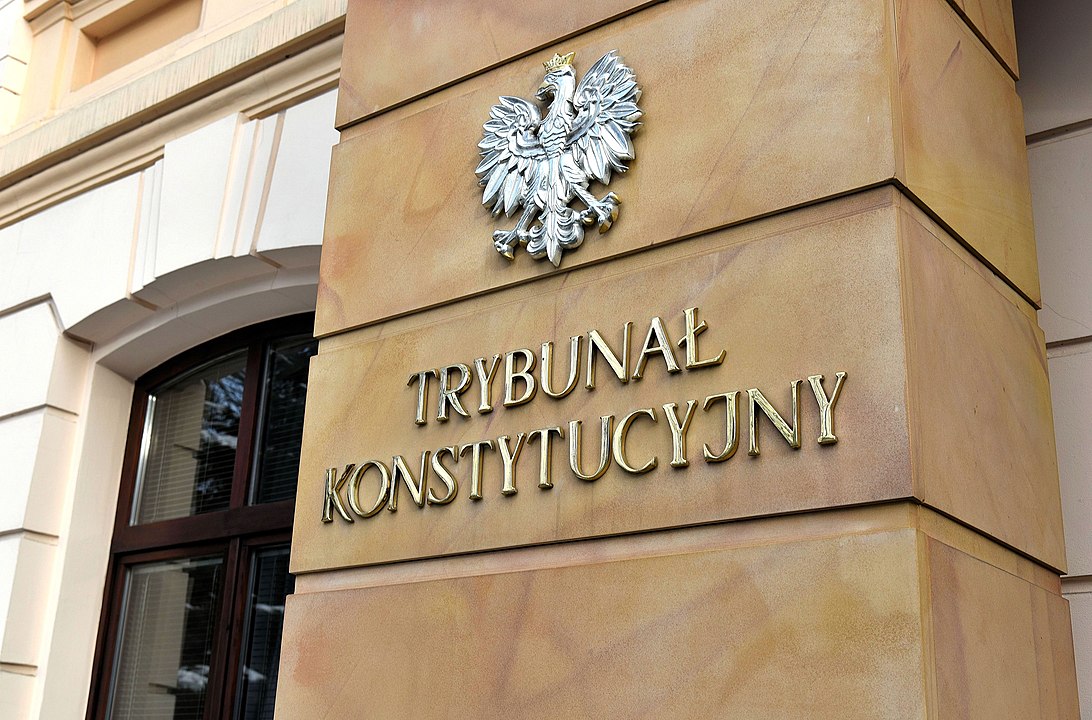Polish Pro-Life Law Enters into Force: What Does the Publication of the Constitutional Court’s Judgment on Abortion Mean?


Wejście do siedziby Trybunału Konstytucyjnego, By Adrian Grycuk - Praca własna, CC BY-SA 3.0 pl, https://commons.wikimedia.org/w/index.php?curid=46587031
Polish law will increase the protection of life in the prenatal period. On Wednesday evening, nearly 100 days after the announcement, the Constitutional Court’s judgment on eugenic abortion was published in the Journal of Laws. How will this decision affect the protection of life in Polish law?
Until the publication of the judgment of 22 October 2020, Polish law provided that the right to life was protected, also in the prenatal phase, apart from 3 circumstances described in the Act on Family Planning.
According to these regulations, abortion was allowed in the case of a pregnancy resulting from rape, when the mother’s life or health was in danger, and also in the case of “in the case of severe and irreversible fetal impairment or incurable illness that threatened the life of the fetus.”
Poland’s constitutional court has published the rationale for its declaration that abortion for fetal abnormalities is unconstitutional three months after it made the ruling. https://t.co/lzsmtbx9RB
— Catholic News Agency (@cnalive) January 28, 2021
The publication of the judgment of the Constitutional Tribunal means that the third of the aforementioned premises loses its legal force. The court ruling found it inconsistent with the Polish constitution. According to pro-life circles, the Catholic Church and parliamentarians who submitted the motion to the Tribunal, this is a premise that allows eugenic abortion. According to data from the Ministry of Health, in 2019 the probability of Down syndrome motivated 40 percent of all abortions. According to the information provided by the ministry, a total of 3,231 abortions were performed in Poland in 2016-2018.
The selection of people on the basis of illness and disability is unconstitutional. I am glad that the justification of the Tribunal’s judgment in this case has been published, - Bartłomiej Wróblewski, a member of the ruling Law and Justice party, co-author of the abortion petition, wrote on Twitter.
In addition to the judgment, the justification of the court’s decision was also published. “In the opinion of the Tribunal, an unborn child is, as a human being – a person who enjoys innate and inalienable dignity, a subject who has the right to life; and the legal system must, according to Article 38 of the Constitution, must guarantee due protection for this central good, without which this subjectivity would be deleted,” says the justification of the judgment of 22 October. Moreover, the Tribunal is of the opinion that “there should be no doubt that the constitutional provisions guarantee protection of the health of a conceived child.”
The justification of the judgment strongly emphasizes that, if the mother’s life and health are not endangered, the legal protection of the child’s life is complete. This is a step forward, firmly removing purely eugenic abortion from Polish law, - comments Atty Jerzy Kwasniewski, president of the Ordo Iuris institute.
Two judges presented dissenting opinions against the judgment of the Tribunal of 15 members. In the case of justification, three members of the court dissented.
In its judgment of 22 October, the Tribunal indicated that the legislator should adapt the law to the judgment. Given the plight of mothers, legislators should see to providing real help for them. It was emphasized that burden of raising a seriously ill child should not be borne by the parents alone.
After the publication of the judgment in Polish law, two conditions for abortion still apply: when the pregnancy poses a threat to the mother’s life or health or is a result of a criminal act (most often rape).
The extension of the scope of the legal protection of life, in accordance with the Constitution, entered into force on the day the judgment was published.
Tłumaczenie powstało na zamówienie Fundacji ŻYCIU TAK im. Niepokalanego Poczęcia Najświętszej Maryi Panny




Dodaj komentarz